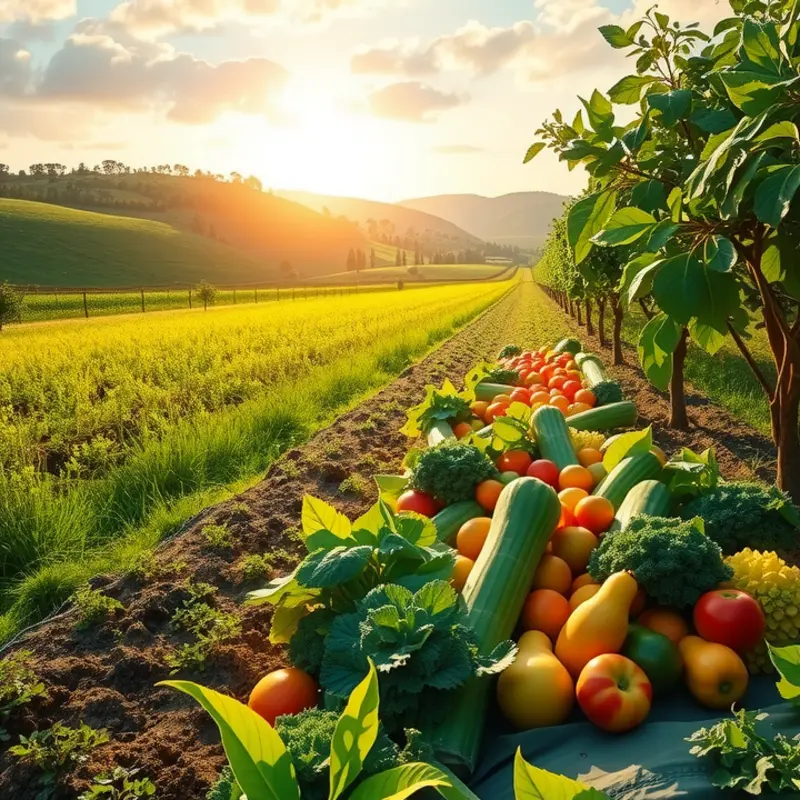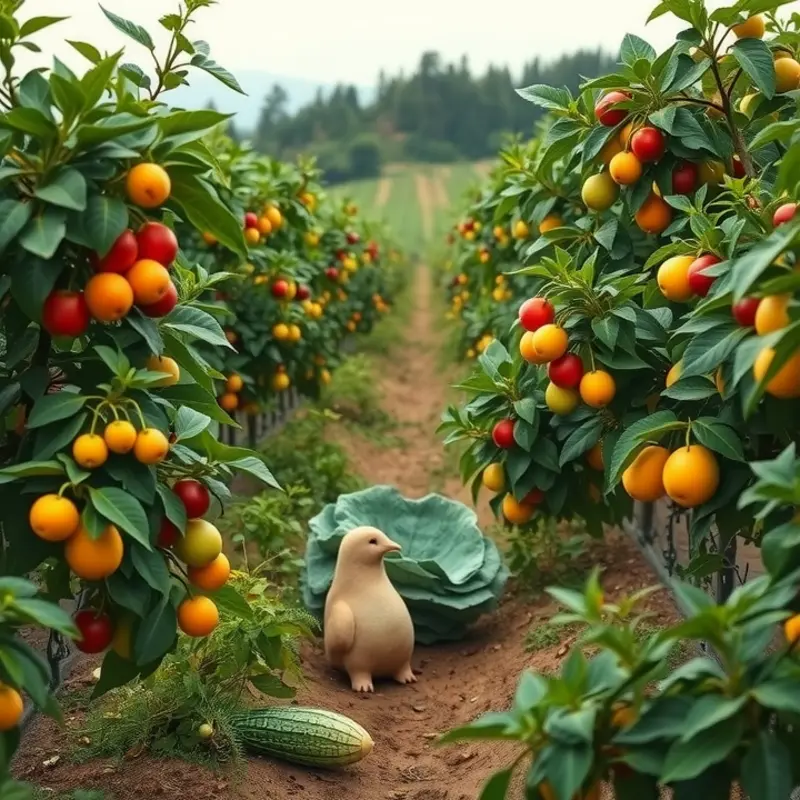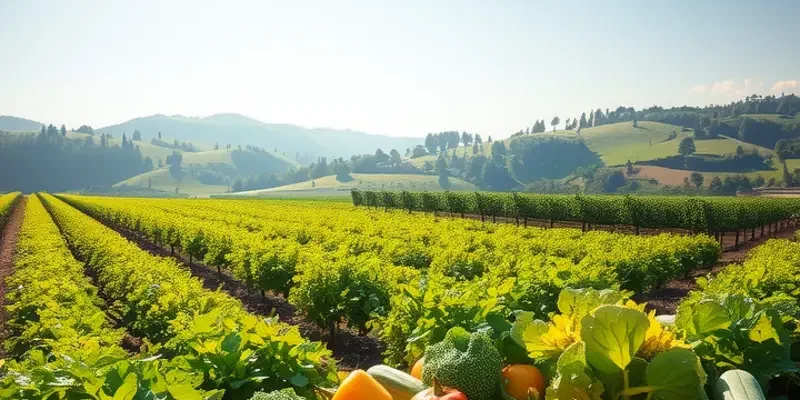Wildlife conservation is more than a noble cause; it’s a necessity for our planet’s survival. Choosing sustainable diets can significantly contribute to the preservation of ecosystems and biodiversity. By understanding the link between our diet and wildlife health, we can make empowered choices that not only support our health but also protect wildlife. Let’s explore practical diet options that align with environmental sustainability and conservation efforts.
The Connection Between Diet and Wildlife Conservation

Our diets influence much more than personal health; they have a profound impact on wildlife conservation. With every meal, we shape ecosystems, either contributing to their degradation or supporting their resilience.
Food production, especially involving animal agriculture, is a significant driver of environmental degradation. Large-scale land clearing for livestock farming eradicates habitats and displaces countless species. Grazing cattle often leads to soil erosion and deforestation, directly threatening biodiversity. As habitats shrink, the balance of ecosystems gets disturbed, pushing many species towards extinction.
The oceans, too, suffer from human dietary preferences. Overfishing threatens marine life, while unsustainable fishing practices can devastate entire populations. Bycatch, a critical issue, unintentionally captures dolphins, turtles, and other non-targeted species, further stressing already vulnerable populations.
Choosing a plant-based diet can alleviate some of these pressures. Plant cultivation generally requires less land and water compared to raising livestock, reducing habitat conversion. Such dietary shifts also lower greenhouse gas emissions. Livestock alone contributes significantly to methane emissions, a potent greenhouse gas. By opting for vegetables, fruits, legumes, and grains, we can collectively lessen our carbon footprints and promote habitat preservation.
Sustainably sourced food products also play a pivotal role in conservation efforts. Products certified by credible organizations ensure that the food is harvested ethically and responsibly, minimizing environmental impact. This can include sustainably fished seafood, which respects marine life cycles, and agroecological farming methods that support soil health and biodiversity.
Consuming mindfully is another powerful tool for conservation. By prioritizing local and seasonal produce, we reduce dependency on long supply chains that inflate carbon emissions. Additionally, embracing a zero-waste approach in the kitchen—like practicing safer storage of sauces and foods—further aligns our dietary habits with ecological preservation. More on reducing waste and eco-smart storage can be found here.
Ethical consumption means recognizing the interconnectedness of our choices with the planet’s health. By supporting conservation-driven practices and reducing demand for high-impact foods, we empower efforts to protect endangered species and their habitats. Through conscious eating, we contribute actively to the intricate balance that sustains life on Earth.
Adopting Sustainable Eating Practices

Choosing to eat sustainably can significantly impact wildlife conservation. A fundamental step is prioritizing local sourcing. Buying from nearby farmers reduces the carbon footprint associated with transporting food. Additionally, it supports local economies, fostering a closer connection to food origins. Farmer’s markets and roadside stands are excellent venues to explore vibrant, fresh produce.
Another vital consideration is reducing meat consumption. Livestock farming is a major contributor to greenhouse gas emissions and deforestation. Adopting a plant-focused diet does not mean sacrificing nutrition or taste. You can explore a variety of wholesome plant-based foods that deliver essential nutrients. For inspiration and practical tips, check out easy plant-based eating.
Choosing organic products whenever possible is another sustainable practice. Organic farming relies less on synthetic fertilizers and pesticides, which can harm wildlife and ecosystems. By opting for organic, you contribute to a healthier environment and encourage farming practices that preserve biodiversity.
Reducing food waste is a powerful yet often overlooked strategy. Plan meals carefully, use leftovers creatively, and store food properly to maximize its lifespan. You can learn more about storing food safely in our guide on safer storage of sauces.
Incorporating seasonal eating into your routine can enhance sustainability. Seasonal foods are typically fresher, more flavorful, and less resource-intensive. Eating seasonally connects you to natural cycles and supports biodiversity by reducing the demand for out-of-season produce, often grown far away or in energy-intensive environments.
Consider joining a community-supported agriculture (CSA) program. CSAs create a direct link between you and local farmers. By purchasing a share in a farm’s harvest, you reduce the distance your food travels and support sustainable farming practices. Participation in a CSA can also introduce you to new food varieties, encouraging a more diverse diet.
In summary, adopting sustainable eating is about making informed choices that align with ecological preservation. By focusing on local, plant-based, organic, and seasonal options, you can enjoy delicious foods while supporting wildlife conservation and reducing your ecological footprint. These practices also offer an opportunity to reconnect with the joy of eating fresh, vibrant, and nutrient-rich foods, ensuring that both the planet and your well-being flourish.
Final words
Making choices that prioritize wildlife conservation through our diets is not just about personal health; it’s a collective commitment to the planet. By shifting to more sustainable eating practices, each of us can substantially reduce our ecological footprint. Embrace local, organic, and plant-based foods, and be mindful of the production processes behind what we consume. Together, we can foster healthier ecosystems, support biodiversity, and ensure a thriving planet for future generations.








